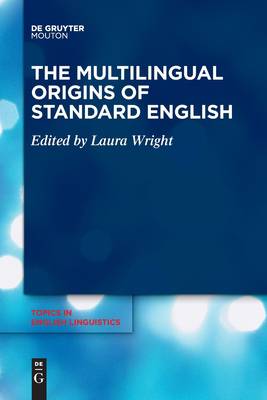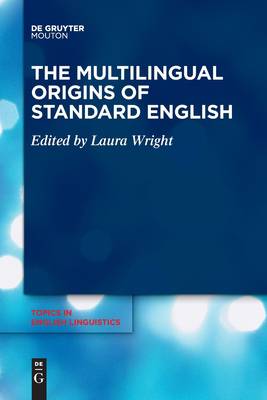
Door een staking bij bpost kan je online bestelling op dit moment iets langer onderweg zijn dan voorzien. Dringend iets nodig? Onze winkels ontvangen jou met open armen!
- Afhalen na 1 uur in een winkel met voorraad
- Gratis thuislevering in België vanaf € 30
- Ruim aanbod met 7 miljoen producten
Door een staking bij bpost kan je online bestelling op dit moment iets langer onderweg zijn dan voorzien. Dringend iets nodig? Onze winkels ontvangen jou met open armen!
- Afhalen na 1 uur in een winkel met voorraad
- Gratis thuislevering in België vanaf € 30
- Ruim aanbod met 7 miljoen producten
Zoeken
The Multilingual Origins of Standard English
€ 40,45
+ 80 punten
Omschrijving
Textbooks inform readers that the precursor of Standard English was supposedly an East or Central Midlands variety which became adopted in London; that monolingual fifteenth century English manuscripts fall into internally-cohesive Types; and that the fourth Type, dating after 1435 and labelled 'Chancery Standard', provided the mechanism by which this supposedly Midlands variety spread out from London. This set of explanations is challenged by taking a multilingual perspective, examining Anglo-Norman French, Medieval Latin and mixed-language contexts as well as monolingual English ones. By analysing local and legal documents, mercantile accounts, personal letters and journals, medical and religious prose, multiply-copied works, and the output of individual scribes, standardisation is shown to have been preceded by supralocalisation rather than imposed top-down as a single entity by governmental authority. Linguistic features examined include syntax, morphology, vocabulary, spelling, letter-graphs, abbreviations and suspensions, social context and discourse norms, pragmatics, registers, text-types, communities of practice social networks, and the multilingual backdrop, which was influenced by shifting socioeconomic trends.
Specificaties
Betrokkenen
- Uitgeverij:
Inhoud
- Aantal bladzijden:
- 545
- Taal:
- Engels
- Reeks:
- Reeksnummer:
- nr. 107
Eigenschappen
- Productcode (EAN):
- 9783110995107
- Verschijningsdatum:
- 18/07/2022
- Uitvoering:
- Paperback
- Formaat:
- Trade paperback (VS)
- Afmetingen:
- 156 mm x 234 mm
- Gewicht:
- 830 g

Alleen bij Standaard Boekhandel
+ 80 punten op je klantenkaart van Standaard Boekhandel
Beoordelingen
We publiceren alleen reviews die voldoen aan de voorwaarden voor reviews. Bekijk onze voorwaarden voor reviews.










